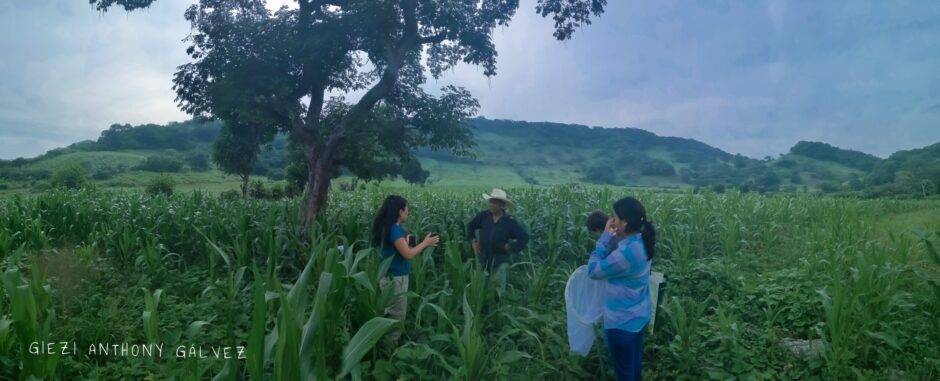If you are interested in our work and are interested in joining the lab, there are several ways to do so. Since you may be new to the process, I have found several websites that may contain useful advice for prospective students.
Advice on the graduate admissions process
More advice on how to apply for graduate school
Commitment to Diversity
I believe that all students have the potential to creatively contribute to the biological sciences, especially if they feel accepted and included. I am strongly committed to the success of underrepresented, LGBTQ, and first-generation students, as well as building diversity competency for all students. As a graduate mentor, I try to help all students build strategies and skills for navigating a career in the sciences. I am active on campus in working towards improving the campus climate to be more diverse, inclusive, and equitable.
Graduate students
I am interested in working with curious, motivated students who are interested in developing their own questions that fit within the broader framework of the lab. If you are interested in applying to work in my lab, please be prepared to send me the following information:
- A cover letter detailing the following:
- What are you most curious about? What research questions are you most interested in pursuing?
- Why do you want join the lab as a M. S. or Ph. D. student?
- How does the existing scope of work fit with your research interests?
- An unofficial transcript
- Resume
- A previous publications if available
Graduate students can apply for different types of funding support:
1. The Department of Plant and Soil Sciences offers Graduate Teaching Assistantships – 3 years for Ph. D. students, 2 years for Masters students
2. UVM’s Food Systems program has a research track, where students complete a year-long research-based project with a Faculty Advisor, while continuing to take courses through the second year.
3. Graduate Research Assistantships receive support from research grants to me. Check on this website or email me for updates on assistantships.
4. Prospective graduate students are also eligible for fellowships. I would be happy to read and provide feedback on your application:
5. New in 2017, the NSF QuEST Ph. D. program at UVM funds Ph. D. students.
6. The Gund Institute for Environment at the University of Vermont (UVM) is recruiting PhD students to conduct interdisciplinary research on major global environmental challenges as part of a competitive PhD Research Assistantship program. Students will have considerable latitude and assistance in developing the direction of their work, but it must be related to achieving the United Nations’ Sustainable Development Goals. As a Gund Fellow, students working with me are eligible to apply for this award.
Students receive up to four years of funding at $32,000 per year, tuition, and UVM’s student health insurance. They can also access enrichment funds for conferences and research costs.
Fellowships for US Citizens
a. National Science Foundation’s Graduate Research Fellowship Program. Students can apply prior to the NSF GRFP program prior to applying for graduate admission to Plant and Soil Sciences. Applications are typically due in the beginning of November.
b. EPA Star – topics eligible for funding vary yearly, so you may be interested to apply following admission into the PSS graduate program. Applications are typically announced in the spring around March.
c. USDA National Needs Graduate and Postgraduate Fellowship Grants. This program provides Fellowship funding, international research travel support, and . The funding cycle may vary but applications may be due in December or January.
Fellowships for International Students
Other languages spoken in the lab: 中文, Español
a. Fulbright Foreign Student Program supports graduate fellowships for foreign students to obtain their graduate degrees from US institutions.
b. For students from Latin America, there graduate scholarship opportunities for studies in the US (starting page 5).
c. For students from Mexico, CONACYT supports scholarships for Mexican students to study abroad. You will have to justify why you need to leave the country to study your particular topic.
Para los estudiantes de México, CONACYT apoya becas para estudiantes mexicanos para estudiar en el extranjero. Tendrá que justificar por qué tiene que salir del país para estudiar el tema en particular.
d. If you are a citizen of Vietnam, the Vietnam Education Foundation supports Vietnamese students to obtain their degrees from US institutions.
e. For Indian citizens, the Fulbright-Nehru program provide generous support for students seeking a Masters degree in Environmental Science.
f. Aga Khan Foundation – The Foundation provides 50% grant and 50% loan awards to students from developing countries that the Foundation has a presence. The fund awards primarily awards for students seeking a Masters degree.
g. For women from developed or developing countries, visit the American Association of University Women (AAUW) site, to check out their programs.
Undergraduates
To apply for a research internship in the lab, please send Dr. Chen a cover letter, resume, and transcript. In your cover letter, please discuss why you want to work in the lab and your career goals.
Here are ways that undergrads can work in the lab:
1. Work as an work-study student. Work-study positions are posted here.
2. Receive undergraduate credit for an independent study. Typically undergraduate students register for 3 credits per fall and spring semester in their home department. Undergraduate students in the Department of Plant and Soil Sciences can receive credit through PSS 197/198.
3. Or apply for your own funding with our help! The best time to apply for funding is in the February of your sophomore or junior year. Funding for undergraduate research projects can be found through the Office of Undergraduate Research.
Resources for increasing diversity in STEM
Avoid gender bias in letter writing – University of Arizona
Resources on Implicit Bias – National Academies of Sciences, Engineering, and Math
How to Fix Recommendation Bias and Evaluation Inflation- Scientific American
What does it take to make an institution more diverse? – Nature
